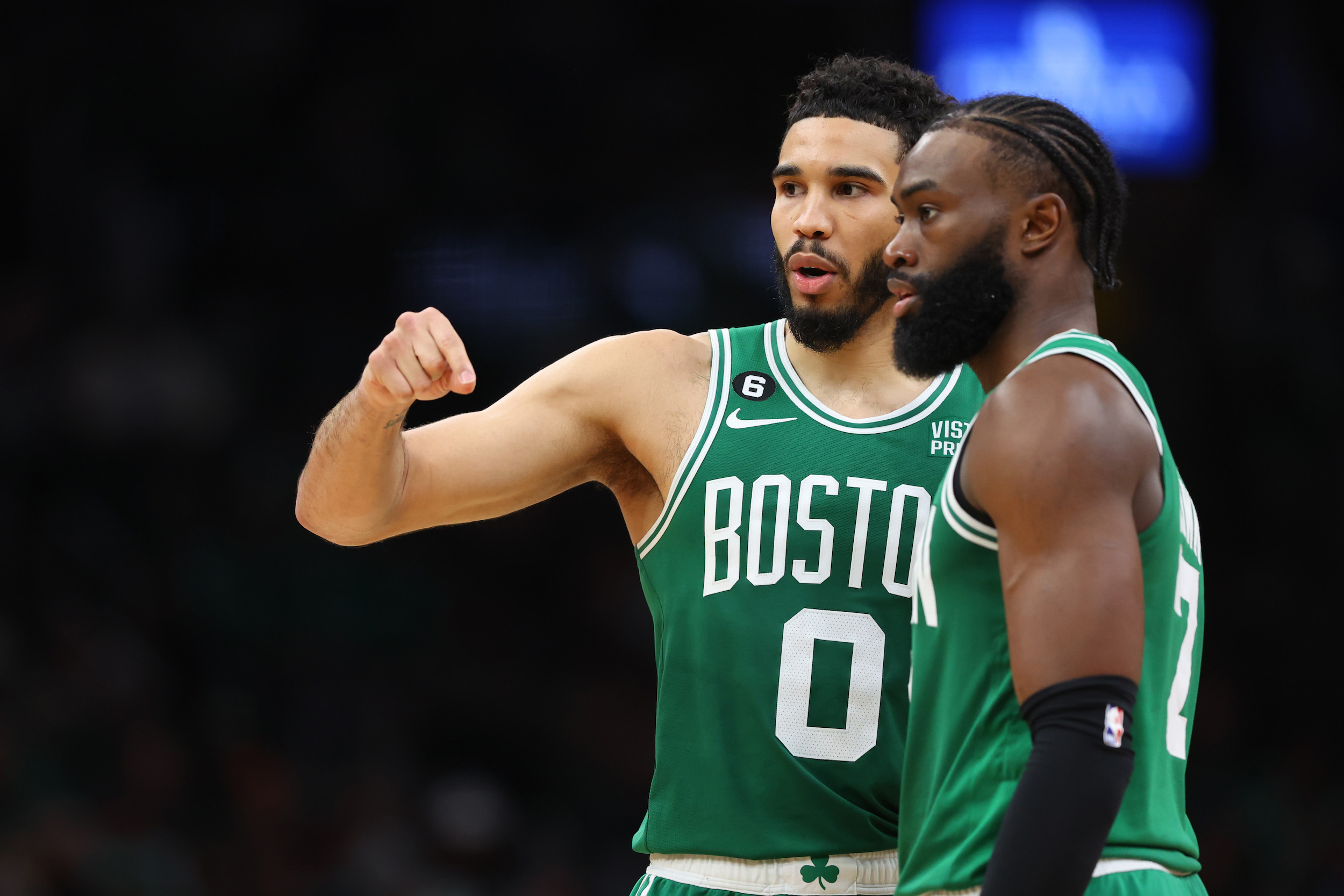Nobody enjoys the honor of "biggest contract in NBA history" for long, because a newly humongous bag lands every summer. On Tuesday, that title was stripped from Nikola Jokic and handed to Jaylen Brown. (Jokic isn't one to care, and he's too busy winning horse races anyway.) After weeks of negotiation, the Celtics wing signed a five-year extension for roughly $300 million. Having secured a nomination to an All-NBA team, Brown's salary next season will be 35 percent of the cap, and escalate from there. He becomes just the 12th player ever to sign such a "supermax" deal since the structure was introduced in the 2017 collective bargaining agreement.
You can make out the tug-of-war of contract negotiation in the details of Brown's deal. He did not come away with a player option, though he did get a kicker that juices the value of his contract if he is traded, and his money isn't contingent on any performance incentives. These superficial details held the only suspense, because the actual substance of the contract was never in question. Brown was always going to be offered this deal. NBA teams don't sit on their hands and let max-eligible stars walk away, no matter how ignominious their last playoff performance. Jaylen Brown is here to stay. For years—and as recently as this offseason—his name has been dragged into trade rumors, but signing this deal means that rather than serving as the trade chip for Jayson Tatum's hypothetical deputy, Brown has locked in his fate as Jayson Tatum's actual deputy. Brown cannot be traded for a full calendar year.
It's fun to look back and see how those 12 supermax contracts have aged. In one corner is a lovely vintage Dame Lillard; here is a muddier but decent Rudy Gobert; all over the walls and ceiling is a vinegary batch of John Wall. For the best players in the league—your Embiid, your Giannis, your Jokic—these contracts still fall short of fair pay for their transcendent on-court performance. On the other end, when a player paid like that goes totally pear-shaped, his contract can singlehandedly commit a team to tanking, and inspire innovatively bleak dump-off trades. Brown isn't likely to touch either extreme. He's only 26 years old. He plays the position where elite talent is most precious and scarce, and he plays it quite well. The top-line stuff is pristine: 27 points and 7 boards per 36 minutes, creating his own shots in the half-court, defending at a reasonable level. Look a little harder and the picture gets sketchier. Brown put up 58 percent true shooting, which is exactly league average. He maintained a ratio of 3.5 assists to 2.9 turnovers, a testament to his shaky feel. While his skill development began explosively (could barely dribble at all coming into the league), it appears to have plateaued frustratingly (can barely dribble to his left seven seasons in). Tatum's emergence as a shrewd decision-maker on both ends has simplified basketball for Brown, but it hasn't resolved everything.
Whatever Brown's flaws, there are far worse things to hang an NBA franchise on than two big and skilled wings. That remains the simplest and purest team-building fantasy. Just ask the Clippers, expensively and fruitlessly banging away at that ideal until there's no more meniscii to show for it. Having that much talent at the wings makes roster construction easy. Plug in whatever you like around them, and there will be some way to make it work. The Celtics have elected to play with that versatility. Coming off a grim conference finals loss to the Miami Heat—Brown said he had "failed" the city after eight turnovers and 8-for-23 shooting in the decisive game—they shook up their rotation. Out went Marcus Smart, who probably still had his green hair dye in at time of betrayal, and in came Kristaps Porzingis, who just wrapped up a career season in basketball exile with the Wizards. The Celtics also offloaded Grant Williams for draft crap and cap relief. These moves change their stable identity of the last few seasons; they lost two burly defenders from their old switching scheme, and gained a drop big who loves to swat shots and bomb threes. Joe Mazzulla, who looked severely deep-fried in his first postseason as head coach, has a whole offseason to wrap his head around this new squad. They're a little shorter on depth now, but heavier on top-end talent. On paper, the Celtics will be one of the best teams in the league.
They don't have time to be anything but. Huge contracts have a way of clarifying timelines. After all those seasons where the Tatum-Brown duo felt like a sneak preview of the Celtics' future—just some overachieving young scamps who took LeBron James seven games!—they are now unambiguously the Celtics' present. Tatum, Brown and Porzingis are all between 25 and 27 years old. Collectively, they will earn $116.5 million in the 2024–25 season. A summer from now, Tatum will be eligible for an even fatter version of this same supermax deal, and he will sign the new biggest deal in NBA history. This is Boston's time to win, before they swan-dive into cap hell.






